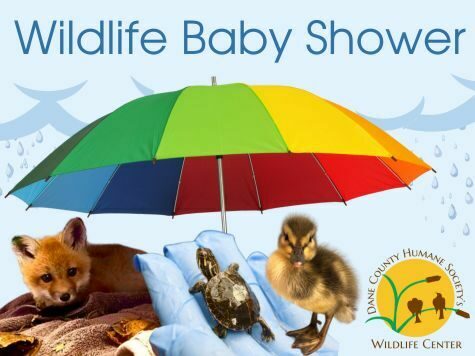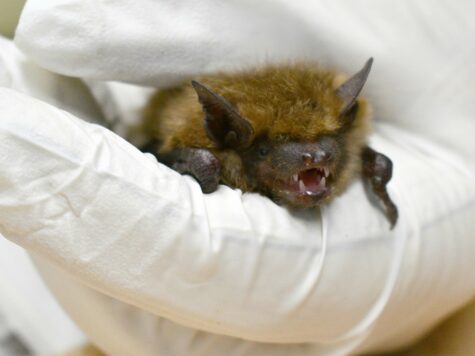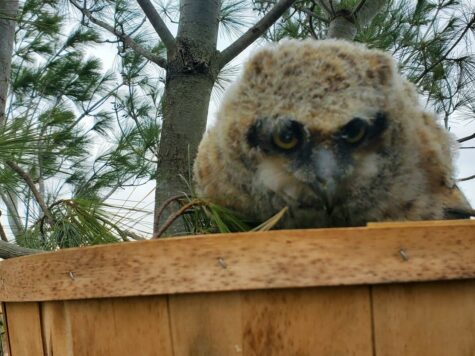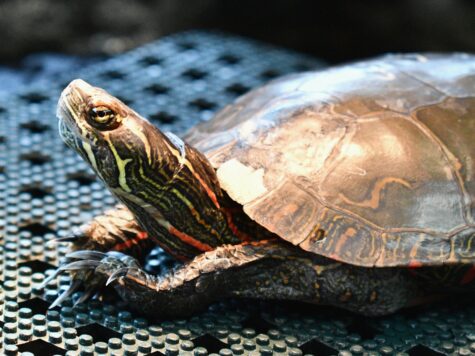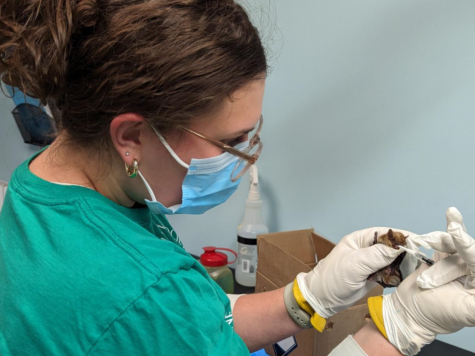We’re mid-way through the year and summer season at Dane County Humane Society’s Wildlife Center (DCHSWC), and wow – it’s been busy! Staff, interns, and volunteers have been working hard to care for hundreds of sick or injured wildlife patients. Amidst yet another season with heavy zoonotic disease outbreaks, namely the recent Highly Pathogenic Avian Influenza (HPAI), we continue to persevere and help the public and animals to the best of our abilities. Thank you to all who contribute or assist in this effort.
At the end of June 2022, 218 wild patients were active and in rehabilitation at our facility, and 292 other individual animals had either been successfully released or stabilized/transferred to other rehabilitation partners since the start of the year. A few favorite patients included four young red foxes, three young blue jays, six hooded mergansers, a snowy owl, and three downy woodpecker fledglings (with a cage all to themselves). Five hundred or so odd patients may not seem like much, but typical DCHS wildlife admission numbers in the first half of the year range from about 1,200 to 2,200 animals. Then, this volume increases to approximately 3,000 – 4,000 by the end of the year.
Our goal as wildlife rehabilitators is to release at least half of our intakes, knowing that many of those animals are admitted in critical condition, often unable to be saved (regardless of how hard we may try). The highest number of wild animals arrive between April 15 and October 15 each year, and if you’re interested, check out the table below to see how many animals came in during those months over the last seven years!
We are only able to perform this life-saving work because of help from members of our community: volunteers who donate their time, individuals who support the mission, and those who donate funds. Unexpected challenges this year have required more money for biosecurity equipment, tests, and protective gear, all of which had to be purchased to keep personnel safe from disease transmission between wildlife and humans. The generosity we’ve seen through matching gifts has gone a long way and is greatly appreciated, such as those from the Werndli Charitible Trust – these help to offset rising costs and allow us to help more animals.
Jackie Sandberg is the Wildlife Program Manager at DCHS's Wildlife Center.


